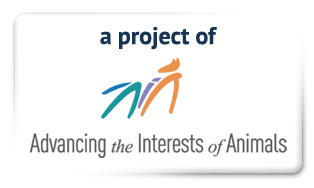When it comes to a fun way of expressing yourself, animal idioms are maybe the funniest and most commonly used type of idioms. Such expressions always have a figurative or rarely, even a literal meaning.
Fun Animal Idioms
Also, many of these idioms have little to do with the animals themselves but they are fun to use regardless.
In this article, we will show you a couple of examples of some known, and not so well-known, fun animal idioms, while also explaining their meaning, and interesting origin.
English Animal Idioms
Idioms are a great way of expanding your language skills by expressing yourself in a different way. The usage of such types of expressions is as old as maybe language itself. Here are some fun animal idiom examples:
* You can’t teach an old dog new tricks – This is a very common animal idiom referring to the fact that older people or animals can’t learn new things.
This is, of course, a false statement (1) as anyone can learn new things and even old dogs can learn new tricks, though a lot harder.
The proverb is also used in stating that someone can’t change their habits or that they’ve invested much of their time in bad habits. This phrase is one of the oldest in the English language and was originated by the English writer John Heywood in 1546 (2).
* There’s an elephant in the room – Another common but fun animal idiom. This phrase refers to an obvious problem that is ignored, and everyone fails to recognize it.
It is a fairly recent used idiom being printed in the mid-20th century. Its exact origin is debated yet the Oxford English Dictionary credits the New York Times newspaper from June 20th, 1959, as the first recorded use of this phrase as a figure of speech (3).
* Hold your horses! – You might drift and end up on someone’s bad side! This expression literally means to hold on or have a little patience. It originated in America in the 19th century and was written as “hold your hosses.” This expression was printed from 1844 onwards and became widely used ever since (4).
* That really gets my goat! – Yup, they’ve heard you and they don’t like it. But this phrase is actually often used to state that someone annoys or angers/bothers you. The exact origin is debated but some people claim that it originated from horse racing.
To calm horses before a race, a goat would be placed in the horse’s stall and if anyone would take the goat it would upset the horse. This phrase began to be used since the early 1900s (5).
* Watching like a hawk – Want to have a good laugh? This expression is indirectly greatly conveyed in the Kitchen Nightmares series. Look up the U.S. version season 2, episode 7 here and watch from 7:43, you’ll understand.
Joke aside; this expression refers to watching someone or something very carefully. Its origin is unknown as there are many different versions of it. It is also used to state that you are watching someone very carefully, in order to not misbehave or make a mistake (6).
* I’ll be a monkey’s uncle – Since Charles Darwin published his books and shared his theory of evolution, those who contested him used this expression. It was used sarcastically since the 19th century and then it was used to express disbelief, amazement or being surprised (7).
* Like shooting fish in a barrel – Now I know why fish look at us like that. This idiom usually refers to an easy task to do. Though it sounds cruel imagine how easy it would be to shoot a fish in a barrel.
This phrase began to be commonly used since the early 1900s. Its origin goes back to the time when fish were stored in barrels and were easy to shot and hit at least one of them (8).
Did you know?
– The English language contains around 25.000 idioms. Many of these feature animals.
– Some fun animal idioms are hundreds or even thousands of years old. Many animal idioms have their origin from the Latin language.
– Idioms were used more often in literature partly due to Shakespeare’s usage of them and many other famous writers.
– Though some animal idioms have a very old origin and were altered over time, some idioms were created recently, and frankly, more are created even in present times.
– Many cultures from around the world have uniquely funny animal idioms/expressions. Many differ quite slightly while others are identical thus pointing to an interesting common origin or perhaps similar mentality.
– Some idioms have a funny background such as “barking at the wrong tree”. When hunting dogs would chase other small animals that would usually climb a tree, the hunter approached the tree. By the time he would get close, the small animals would jump to other trees, but the dog would still bark at the wrong tree.
Sources:
[1.] https://animals.howstuffworks.com/animal-facts/10-wrong-sayings-animals10.htm
[2.] https://www.theidioms.com/you-cant-teach-an-old-dog-new-tricks/
[3.] https://knowyourphrase.com/elephant-in-the-room
[4.] https://www.phrases.org.uk/meanings/184400.html
[5.] https://writingexplained.org/idiom-dictionary/get-your-goat
[6.] https://www.collinsdictionary.com/dictionary/english/watch-someone-like-a-hawk
[7.] https://www.bloomsbury-international.com/student-ezone/idiom-of-the-week/1223-monkeys-uncle/
[8.] https://hotidioms.com/2012/01/29/shooting-fish-in-a-barrel/
Image source:
[1.] https://unsplash.com/photos/wOHH-NUTvVc
[2.] https://unsplash.com/photos/VJ7r5bUdlYI
[3.] https://knowyourphrase.com/wp-content/uploads/2019/02/elephant-in-office.jpg
[4.] https://unsplash.com/photos/oMHdrGe2qds
[5.] https://www.pexels.com/photo/close-up-photo-of-brown-hawk-1629989/
[6.] https://www.pexels.com/photo/hands-animal-zoo-black-41303/



Leave a Reply